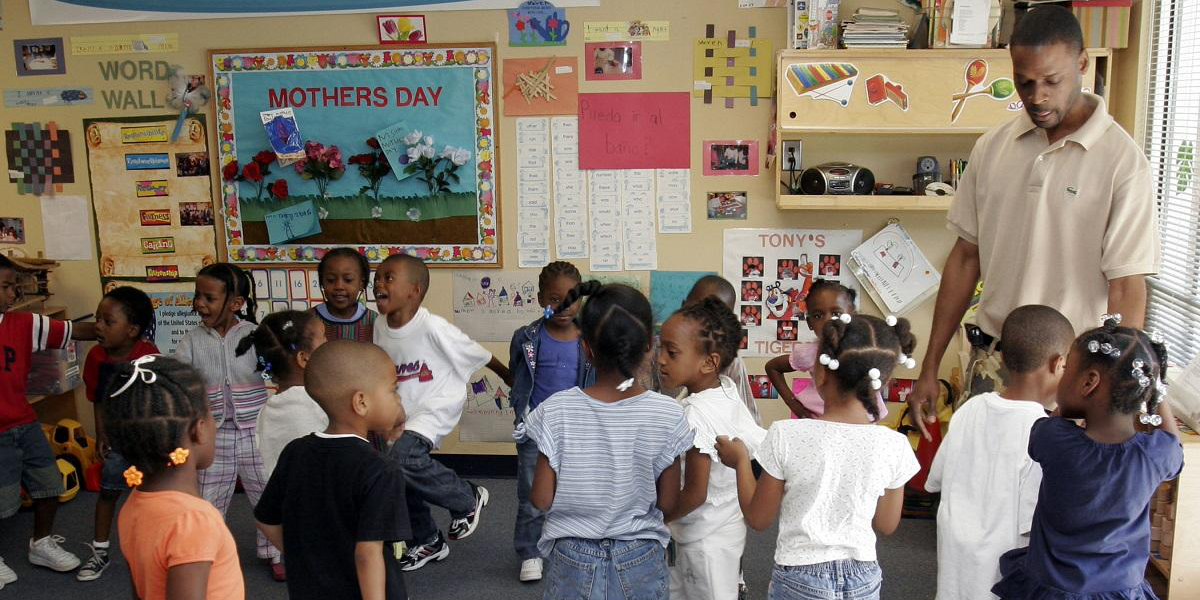Bill Aims To Create More Space For Pre-K In Georgia

Tony Bennett, right, lead teacher at the Sheltering Arms, an early education and family center in Atlanta, Ga. works with a group of Pre-K students Thursday, May 10, 2007. A study released by the Southern Education Foundation reported that the South is leading the country in early childhood education enrollment and quality. (AP Photo/gene Blythe)
Gene Blythe / Associated Press
The Georgia lottery provides money for about 84,000 4 year olds to attend the state’s pre-kindergarten program. But only 81,000 children are served, due to a lack of space.
The lottery pays for teacher salaries and materials, but public schools can’t spend money from the capital outlay fund to build pre-K classrooms. State Sen. Elena Parent, D-Atlanta, came across the problem when she met with state officials last year to find out why so many school districts have lengthy pre-K waiting lists.
“It’s because [pre-K is] funded differently, because it’s funded through the lottery, that it’s not pulled in through the educational K-12 building fund,” Parent said.
Parent introduced legislation this year to change the law so that districts could have more flexibility in how they use the building funds.
“I sat down with the [Georgia Department of Education] to figure out, ‘Ok, how can we work this formula so it can be changed, and it would be fair for everybody?” she said.
Parent represents Atlanta, including parts of DeKalb County, where 556 kids are on a pre-k waiting list. Fulton has 553. Gwinnett County has 460 kids waiting for a pre-K slot.
Plenty of people want to see that waiting list shrink, including Amy Jacobs. She’s the commissioner of Georgia’s Department of Early Care and Learning (DECAL), which oversees the pre-K program. Jacobs says Parent’s bill is interesting, but waiting lists are confined to certain areas.
“To be honest, is it a statewide issue in every local school district?” Jacobs said. “Not necessarily.”
Jacobs concedes that waiting lists in some parts of the state are long. But since changing the law could impact the state’s outlay budget, Jacobs said any legislation needs to be carefully considered.
“There is an issue where we’re having trouble finding quality providers … throughout the state,” she said. “But on the other hand, we’ve got certain areas of the state where we’re serving their entire 4-year-old population. So, it just depends, and it is complicated depending on where you’re located in the state.”
Officials say there are plenty of school districts willing to offer more pre-k programs if they had the space.
9(MDAxODM0MDY4MDEyMTY4NDA3MzI3YjkzMw004))








